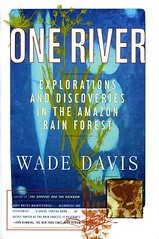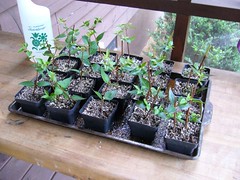 As things stand now my wife and I will be spending this Christmas and New Year's aboard the mv Explorer on a 21-day cruise to Manaus, Brazil. While only a third of the voyage will be on the Amazon itself, that is the third that sold me on the trip. I have no interest in island-hopping on one of those god-awful "fun cruise" ships (movement with not actually going anywhere). But this chance to see the Amazon is different.
As things stand now my wife and I will be spending this Christmas and New Year's aboard the mv Explorer on a 21-day cruise to Manaus, Brazil. While only a third of the voyage will be on the Amazon itself, that is the third that sold me on the trip. I have no interest in island-hopping on one of those god-awful "fun cruise" ships (movement with not actually going anywhere). But this chance to see the Amazon is different.The mv Explorer is the latest ship used by the Semester-at-Sea program. Forty-one years ago I spent a semester aboard the s.s. Ryndam as a student of Chapman College's World Campus Afloat, as the Semester-at-Sea was called in those days. While the program has changed sponsorship several times since then - it is now at The University of Virginia - the experience remains remarkably the same, as I found attending an alumni meeting in Charlotte last week. That voyage remains the most influential single experience of my life.
As we will have a longer time to prepare for the trip than the time we are actually onboard, I am trying to get the most from it by studying ahead of time. I have the DVR programmed to record anything with the words Amazon or Brazil in the title. (Ever watch the Brazil Farm Report on RFD-TV? Riveting.) I have been burning bandwidth with Goggle Earth. I am also reading.
Wade Davis' One River was a mistake, sloppy research on my part. I ordered it thinking it was focused on exploration of the Amazon River. It turned out to be something else entirely, a magical and marvelous book I could barely put down. Read it for Tim Plowman. Read it for Richard Evans Schultes. Read it for Richard Spruce. Read it for Rubber and WW2. Read it for the coca. Read it for the first Americans. Hell, just read it.
It seems like that Semester-at-Sea magic never really went away. Real travel is like that. Go around a corner or turn a page; you never really know what you will see.
I haven't left yet and I want to go back.
